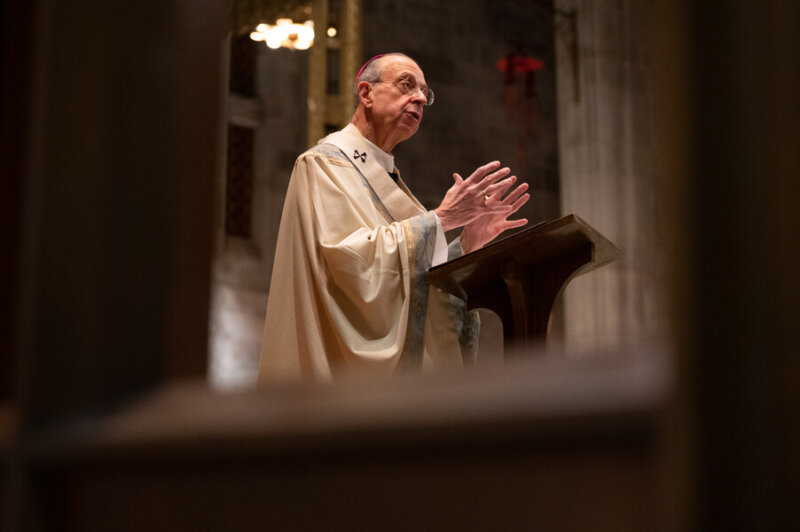Tuesday of the First Week of Advent
St. Mary’s Seminary, Roland Park
November 29, 2022
Shoots Sprout from Stumps
When you sat down to write out your formation goals for the year, I highly doubt that any of you wrote the following: “Goal: To end the year in the last place in my class”. If any of our Baltimore men did write that, then, let’s just say that they’ll have some ‘splaining’ to do.
Naturally, as you give yourself to the process of priestly formation, you want to give it your best, to apply all the gifts and talents God gave you. Unlike Medical School or Law School, you do not have to worry about class rank, but nonetheless, you want to do what is asked of you to the best of your ability, and, hopefully, to help each other do the same.
This is true, not just in your intellectual formation, but also, … in the seriousness with which you take your spiritual life, … the generosity of spirit with which you approach your pastoral experiences, … and the fraternal charity with which you live out community life as a house. Indeed, we should want to do great things, and to do even simple things with a greatness of spirit.
But the readings today put this desire for greatness, alongside another reality, something which any serious Christian, especially those preparing for Holy Orders, ought to pursue: the virtue of littleness. The sprout we hear about in our first reading from Isaiah the prophet, shoots forth not from a mighty tree but from a stump, a tree that has been leveled, brought low. But it is from this leveled tree that new life begins to grow. In the Gospel Jesus rejoices that the mysteries of the Kingdom are revealed not to the wise and the learned but to the childlike. Many of the wise and powerful desired to see and hear what was seen and heard by the humble, the lowly, and the simple, by those willing to embrace their poverty, their littleness.
In All Things Be Great and Small
I would hope, “dare we hope”, one might say, that you men in theology have had occasion to encounter the works of the Swiss theologian Hans Urs von Balthasar. Few theologians in the 20th Century could match the volume of his output. Rarely would you find an intellectual of any discipline with the vast and varied knowledge that Balthasar possessed. Those of you who have encountered his work may have been equally struck by the depth of his vision and by the density of his writing.
All this to say, regardless of where you may fall on his work, Balthasar was a true theological giant, a man whose work attained true greatness. Yet, when he was asked who was the most important and innovative thinker for the Church in the modern world, he chose Therese of Lisieux, a simply educated French nun who had rarely left her hometown and died in her mid-twenties. Why this choice? Because Therese powerfully wed these two realities: greatness and littleness.
It is precisely in being little, in recognizing we are children of the Father, that true greatness is found, given as the gift of a Father who loves us and who enables us to do great things, things we cannot do on our own steam. If, however, we are full of ourselves, diluted by a false sense of grandeur, than we will fail to tap into the true source of all power, viz., the grace of God. And we will fail to fill up on the gifts our Heavenly Father wants to pour out on us.
God wants to raise up good and holy priests. Now, more than ever, the Church needs men who have a desire to do great things for Christ, to build up his Church. You can be those men. Indeed, you are the men whom the Lord is calling to respond to the needs of the Church here and now, and those needs are great. But if you are to do this and to do this well, you must remember that you are first and foremost sons. Before you can be great, you must acknowledge your littleness, your dependence on God’s grace. But if you are aware of this, then, just like those first disciples on mission, the Holy Spirit can and will accomplish great things in you and through you.
May God bless you and keep you always in his love.


